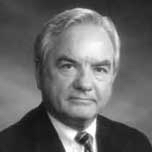June 9, 2016; first published in Educate! Jan. 14, 2001
Lawyer Parks Helms isn’t known for defying courts. So it may have given some folks pause when, in his State of the County address Jan. 9, Helms said that Charlotte-Mecklenburg’s pupil assignment solution “must not be one that is forced upon us by a court.”
The county commissioners chairman at the barricades? Definitely not.
“I’m not surprised that a casual reading of my speech might” lead to some misunderstanding, Helms writes. “I want to reassure you that my proposal is to develop a pupil assignment strategy with the concurrence of a broad cross-section of this community. That strategy needs to be consistent with and in complete compliance with the current rulings of the appellate courts.
“We have many thoughtful and creative leaders in this community who understand the importance of designing a pupil assignment plan that reflects the demographics, the educational needs, and the unique and diverse humanity of this community.

Parks Helms
“I am persuaded that it is much more likely that we can resolve this among ourselves, as opposed to being required to design a system around parameters created by judges and justices who have no ‘sense of community’ about Charlotte-Mecklenburg.”
The horse may be out of the barn here, of course. The 1997 lawsuit that put pupil assignment back into the courts led to a 1999 District Court ruling. A first decision at the Appeals Court came down Nov. 30 (see
Page 1), more rulings are likely at the appeals court, and there is always a chance that the U.S. Supreme Court will weigh in again, as they did in 1971.
“It is my belief,” says Helms, “that if we continue down the appellate path, the U.S. Supreme Court will ultimately enter a ruling that will mandate fundamental changes in the logistics of assigning students to our schools. I would prefer to do what is right without the limitations of any such mandate.
“Please remember that I have made it clear that I believe the past thirty years under Swann vs. Board of Education has been and continues to be successful. However, it is time to make appropriate modifications that take advantage of the social and educational changes that have evolved during this period.”
In the long history of the Swann case, the District Court was the one fashioning orders that shaped specific pupil assignment plans. But Helms has history on his side: The most successful of those plans, implemented in 1974, while approved by the court, was essentially the brainchild of a small group of Charlotte- Mecklenburg citizens.
Is it time for such a group of citizens to be at work? Helms doesn’t say, though one could hear echoes of the Citizens Advisory Group of the early 1970s in his speech. Here is what Helms said about education in his State of the County speech:
“Right now, community consensus is dramatically needed for our education system. We must have equitable educational opportunities for all of our children. We must have a dependable degree of certainty in student assignment. We must attract and keep good teachers – by providing the working environment, salaries and benefits that teachers deserve.
“It is time for all of Charlotte and Mecklenburg to come together on the issue of education. We need a common goal – agreed upon by every segment of the community – governing boards, civic and religious groups, and individual citizens. We must craft a solution to solve our educational dilemma. This solution must not be one that is forced upon us by a court. We must make our own decision – based upon what’s best for this entire community! I stand ready today to work with Superintendent Eric Smith and the Board of Education to craft such a decision.
“By successfully developing and putting into place a workable solution for our schools, we can restore confidence in our public education system. We can enhance educational opportunities for all students. However, this will require each of us to expand our scope of thinking and embrace the possibilities before us.”
Embracing the possibilities, however, may be difficult until the courts offer more clarity about the rules under which CMS must proceed. Today, those rules are those fashioned in the late 1960s. It is possible those rules could soon be turned upside down to follow a ruling by District Judge Robert Potter in 1999. More likely, the appeals court will take its time deciding, and nothing will change for awhile.
What to do during this “awhile?” Helms offers one direction:
“For any plan to succeed,” he writes, “it must be created and owned by the citizens and families whose lives will be affected.”
Conversation over the water cooler, the kitchen table, and at the hall locker could help “each of us to expand our scope of thinking” and prepare the way for action.
![]()
